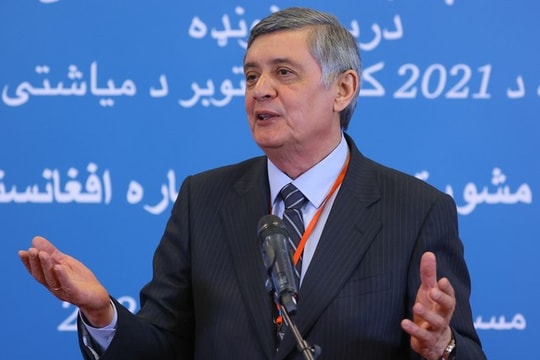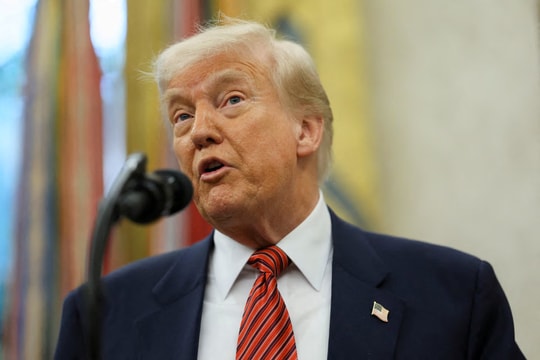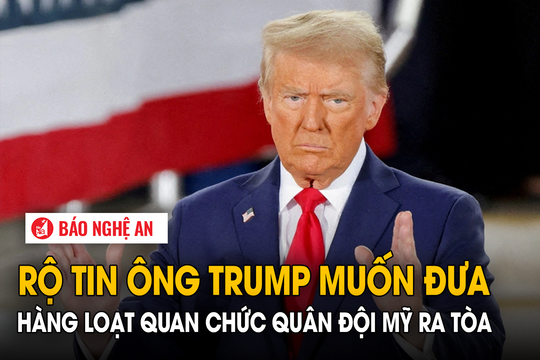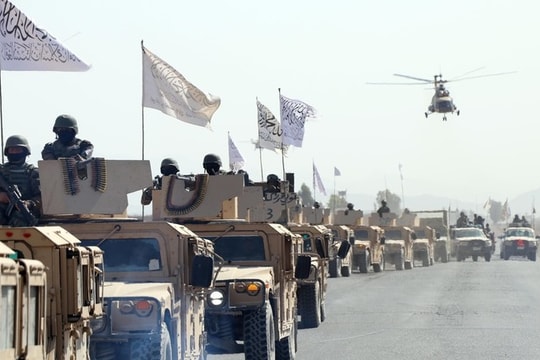Why is it difficult for the US to isolate the Taliban?
Some analysts say the Taliban may be aiming to cooperate with Russia and China to counter the US in order to gain an advantage, in case the force takes control of the capital Kabul.
US Special Envoy to Afghanistan Zalmay Khalilzad is once again in Doha, Qatar to work with the Taliban through the group's political office there.
A statement from the US State Department before the trip said Mr. Khalilzad will meet with many stakeholders, from countries in the region to multilateral organizations, and "urge the Taliban to stop military attacks and engage in negotiations on a political roadmap, which is the only way to ensure peace, stability and development in Afghanistan."
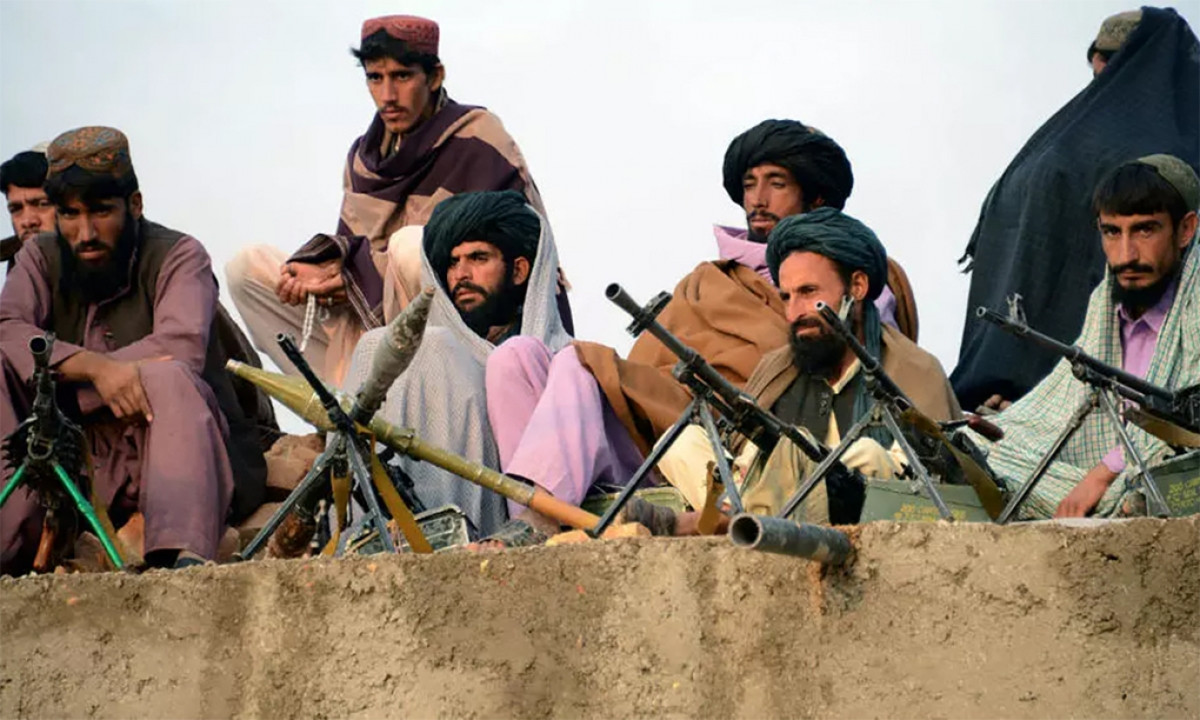 |
Local sources said on August 10 that in the latest offensive, the Taliban captured the cities of Farah and Pul-e-Khumri from the government forces, bringing the number of provincial capitals under their control to eight since launching the offensive on August 6. Fighting continued in the provincial capitals of Helmand, Kandahar, Farah and many other areas.
The current situation is very worrying for the Afghan government, as the Taliban has taken control of the borders and is tightening its grip on the capital Kabul. According to estimates by a European Union official, the Taliban now controls more than 65% of Afghanistan's territory.
AP reported that Mr. Zalmay Khalilzad warned the Taliban: "There is no point in pursuing victory on the battlefield because if the Taliban take over the capital Kabul, they will be an enemy to the world."
But is this really true?
The Taliban, which originated from the Afghan Mujahedeen in the 1980s, began its military campaign in southern Afghanistan in 1994 and by 1996 had captured Kabul without much resistance. Unlike the Mujahedeen, who had built up many relationships during their decades-long war with the Soviet Union, the Taliban had few friends. Only Pakistan, Turkmenistan, Saudi Arabia and the United Arab Emirates (UAE) recognized the government it installed in the 1990s.
However, the Taliban's political role has grown and its relationships have expanded since it took control of Afghanistan in 2001.
After the September 11, 2001 terrorist attacks, the US demanded that the Taliban hand over Osama bin Laden and expel al-Qaeda members from Afghanistan, but the Taliban refused to comply with this request. That led the US and its allies to launch Operation Enduring Freedom in Afghanistan from October 2001, targeting Taliban targets, causing the force to lose control of important areas and had to withdraw from the capital Kabul a month later.
However, the Taliban quickly rebuilt its network in 2004 and began carrying out bloody attacks against the new Afghan government and foreign troops. The force regained its fighting capacity, despite regular attacks by the US and NATO forces.
Realizing that fighting was not a suitable solution to end the conflict in Afghanistan, the US conducted negotiations with the Taliban and the two sides reached a number of agreements under the administration of former President Trump.
Looking for support
On the military front, the Taliban has continued to gain advantages, and on the political front, this force has also increased contacts with foreign governments, including those that previously considered them terrorists.
Taliban representatives have recently met with Russian officials in Moscow, Turkmen officials in Ashgabat and Chinese officials in Tianjin. In July, Iran hosted talks between Taliban representatives and the Afghan government.
Last week, a Taliban delegation made a five-day visit to Uzbekistan. Reuters, citing a senior Taliban source, said the group had set up a political office in Tashkent, the capital of Uzbekistan. India is also said to have opened a channel of contact with the Taliban.
During each visit, the Taliban made commitments in line with the demands of the host countries, in order to gain regional support. In Russia, the Taliban promised not to interfere in Central Asia. In China, the Taliban were asked to sever ties with the East Turkestan Islamic Movement (ETIM), an extremist group founded by Uyghur jihadists in western China.
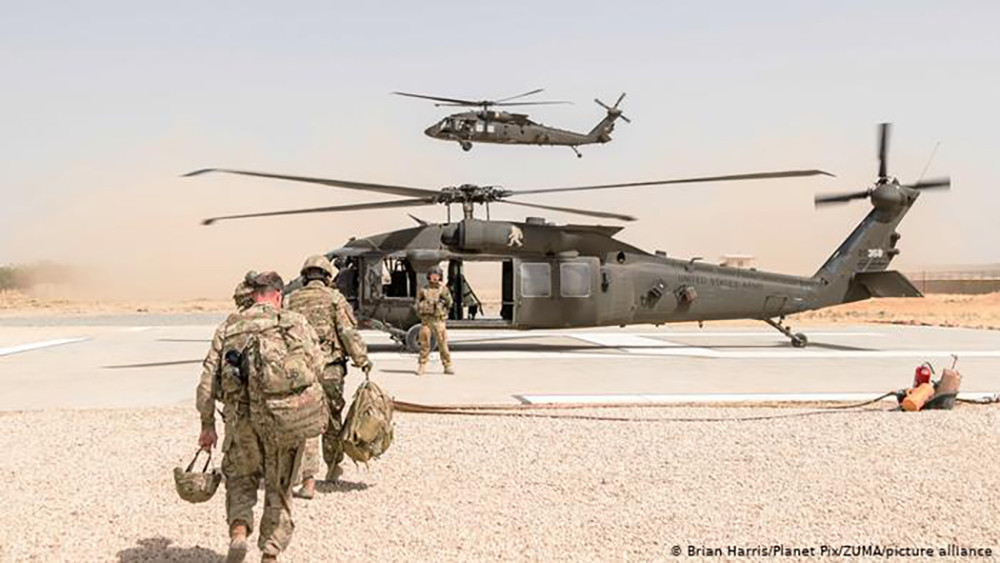 |
| Washington announced in October 2020 that it would withdraw most of its troops from Afghanistan. Photo: ZUMA |
Some analysts say the Taliban may be aiming to cooperate with Russia and China to counter the US in order to gain an advantage in case the force takes control of the capital Kabul.
Although most views around the world support an Afghan-led peace process, the possibility of the Taliban being willing to join a power-sharing government seems remote.
Russia, the US and China have all made it clear that their interests in Afghanistan are similar, but their political views and goals are different. China would find it easier to deal with a Taliban-controlled Afghanistan in the future. So would Russia.
On the contrary, the US continues to promote international consensus on the Afghanistan crisis and support the country's new government. Therefore, in the event of the Taliban taking power, Afghanistan will certainly become a country that confronts the US and the West.
But Russia and China have a history of supporting countries that are at odds with Washington, such as Iran and North Korea. On Afghanistan, both sides have plenty of reasons to do the same: China wants the Taliban to ensure that Afghanistan will not be used as a base for attacks in Xinjiang by the East Turkestan Islamic Movement, and Russia wants the Taliban to not violate the Afghanistan-Tajikistan border or any other borders with Central Asian countries.
Moreover, the power competition between major powers also plays a dominant role in the situation in Afghanistan. Washington’s withdrawal from Afghanistan in the most unsuccessful way could bring political victory to Moscow and Beijing. Considering this aspect, whether the US can successfully isolate the Taliban or not is still a big question, because the current situation is very different from that of 1996./.

